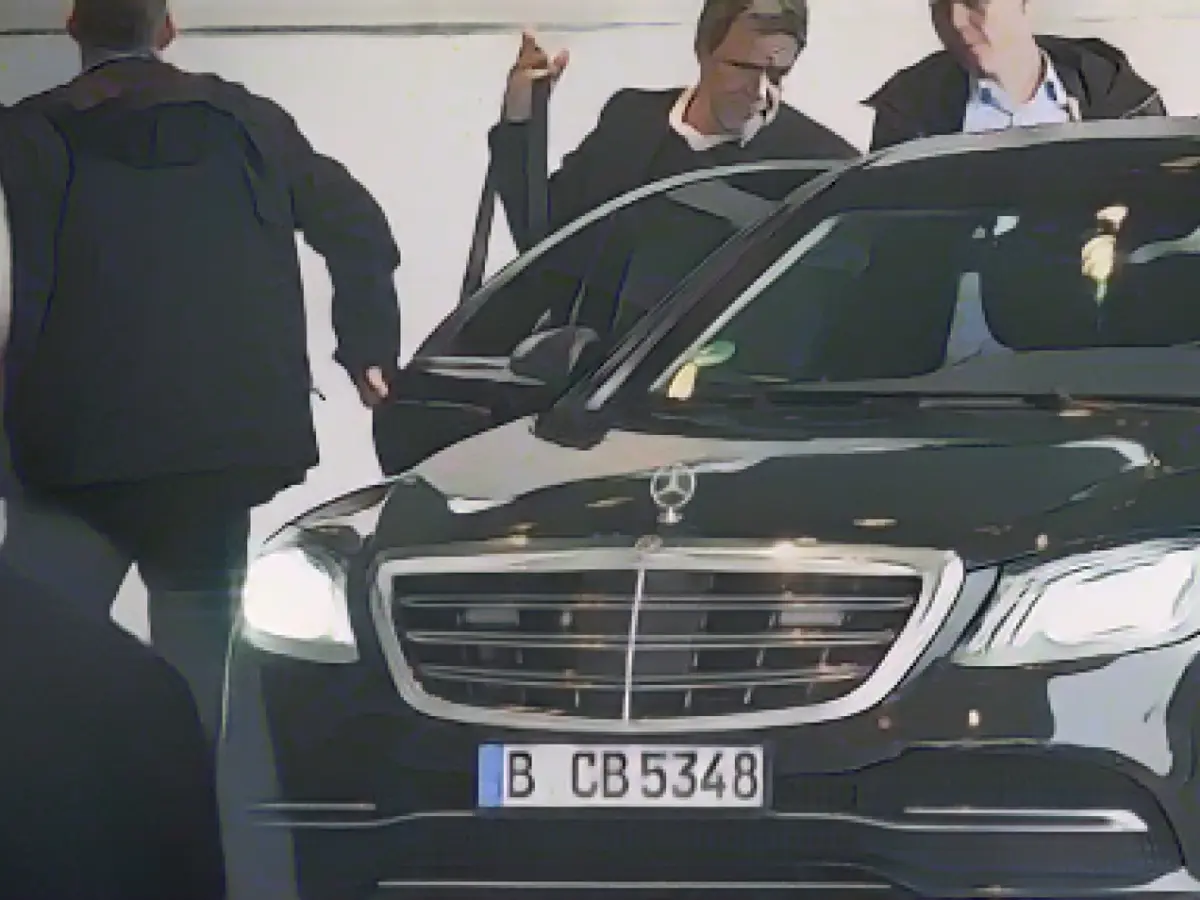Federal Government - Breakthrough in budget talks between the traffic light leaders
According to the Deutsche Presse-Agentur, the leaders of the traffic light coalition have reached an agreement on the federal budget for 2024. Details are to be announced later today, as dpa learned on Wednesday morning.
Almost four weeks after the ruling by the Federal Constitutional Court, a solution to the budget crisis, which has put the coalition government under severe pressure, has now been found. Chancellor Olaf Scholz (SPD), Vice-Chancellor Robert Habeck (Greens) and Finance Minister Christian Lindner (FDP) have since discussed how to plug a 17 billion euro hole in the budget for the coming year.
They also discussed how investments in climate protection and the modernization of the economy can be made possible despite the ruling. This is because there is a shortfall of 60 billion euros in the so-called Climate and Transformation Fund, which had already been firmly planned for projects in the coming years. For the coming year alone, this amounts to 13 billion euros.
The judges in Karlsruhe had declared a reallocation in the 2021 budget null and void and ruled that the Federal Government may not set aside emergency loans for later years.
Bundestag decision likely in January
On Tuesday morning, Scholz, Lindner and Habeck met again at the Chancellery after they had adjourned their meeting the night before once again. They later brought in the heads of the Ampel parliamentary groups, spoke in their own parliamentary groups and then withdrew to the Chancellery again in a small circle. In the end, an overnight meeting was obviously necessary. The agreement was reached early Wednesday morning.
The coalition government actually wanted to pass the budget for 2024 before the end of the year, but it was already clear last week that this would not be possible due to the consultation times of the Bundestag and Bundesrat. Now, at least the Bundestag Budget Committee could possibly complete its deliberations before Christmas. However, this depends on how extensive the budget amendments proposed by the leading politicians are. The Bundestag could then meet in January for the budget week and adopt the budget, after which the Bundesrat could give the green light.
Until then, a so-called provisional budget would apply. For the time being, only expenditure that is necessary to maintain the administration and fulfill legal obligations is possible. In practice, however, the Ministry of Finance can authorize the ministries to use a percentage of the funds in the draft budget that has not yet been approved each month.
Debt brake? Saving? Details still open
It was not initially known what solution Scholz, Habeck and Lindner came up with. Among other things, the suspension of the debt brake for 2024 was discussed. The Basic Law allows higher borrowing in special emergencies. The SPD and Greens had argued that the war in Ukraine could be such an emergency.
It would then possibly be possible to finance the aid payments for the country attacked by Russia via loans to a very limited extent. Lindner has not yet been convinced. FDP parliamentary group leader Christian Dürr also emphasized on Tuesday that he did not see the legal requirements for declaring an emergency. The CDU/CSU is considering taking the matter to the Federal Constitutional Court again if the debt brake is suspended.
Tough austerity measures in various areas were also debated. The FDP wanted to review social benefits and certain subsidies in particular. The planned increase in the citizen's allowance, for example, was controversial. The basic child protection scheme, which is due to start in 2025, could also be postponed further. Chancellor Scholz ruled out any cuts to social benefits - however, the SPD also said that it would be necessary to discuss the accuracy of benefits.
The Greens called for a reduction in climate-damaging subsidies, which in their opinion include tax benefits for diesel and agricultural and forestry businesses. This would provide the state with more revenue and therefore more leeway.
Read also:
- Year of climate records: extreme is the new normal
- Precautionary arrests show Islamist terror threat
- SPD rules out budget resolution before the end of the year
- Numerous oil, gas and coal lobbyists at climate conference
- The budget discussion between Olaf Scholz, Robert Habeck, and Christian Lindzer, the leaders of the traffic light coalition, has resulted in a 17 billion euro solution to the budget crisis.
- Olaf Scholz, the German Chancellor, along with Vice-Chancellor Robert Habeck and Finance Minister Christian Lindner, met multiple times to address the budget hole.
- The German Press Agency reported that the traffic light coalition leaders reached an agreement on the federal budget for 2024 after nearly four weeks of intense negotiations.
- The Federal Government is currently dealing with a shortfall in the Climate and Transformation Fund, which amounts to 13 billion euros for the coming year.
- The Federal Constitutional Court ruled that emergency loans for later years were not permissible in their 2021 budget reallocation judgment.
- The SPD and Greens argued that the war in Ukraine could be considered a special emergency, which may allow for higher borrowing, according to the Basic Law.
- The FDP parliamentary group leader, Christian Dürr, expressed concerns about the legal requirements for declaring an emergency if the debt brake is suspended.
- The coalition government aimed to pass the 2024 budget before the end of the year, but this goal was no longer feasible due to consultation times.
- Capital investments in climate protection and economic modernization are still possible, despite the ruling, according to the three coalition leaders.
- The Federal Council will likely have to give its approval for the budget in January, as the Bundestag Budget Committee could potentially complete its deliberations before Christmas.
Source: www.stern.de








